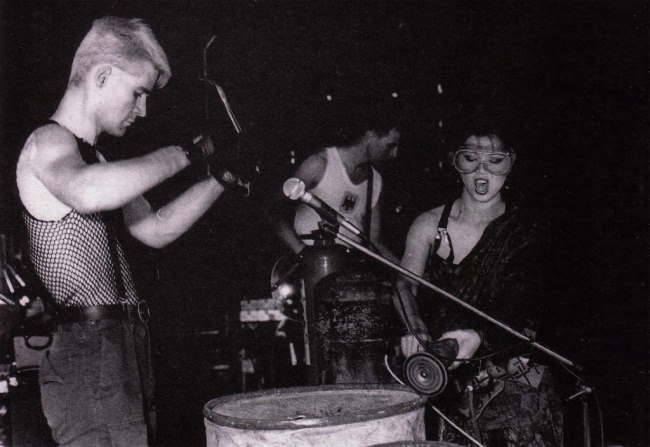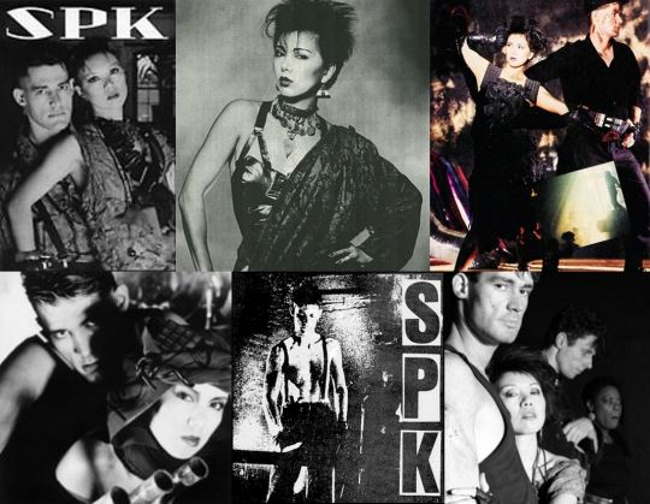S.P.K.

SPK Biography
S.P.K., which stands for "Sozialistisches Patientenkollektiv" (Socialist Patients' Collective), was an industrial band founded in 1978 in Sydney, Australia. The group was initially formed by Graeme Revell, who had a background in experimental music, and Neil Hill, who had been involved in left-wing political activism.
The band's name and ideology were inspired by a German organization of the same name, which was founded in 1970 by a group of left-wing psychiatrists, psychotherapists, and patients who were critical of the medical establishment's treatment of mental illness. The S.P.K. collective sought to challenge the notion that mental illness was solely a personal issue, arguing that it was a product of social and political structures.
S.P.K.'s early work was characterized by a harsh and abrasive sound that incorporated elements of noise and experimental music. Their first release, "Information Overload Unit," was a limited edition cassette that featured recordings of medical equipment and industrial machinery. The cassette was accompanied by a manifesto that proclaimed the group's commitment to "radical politics and total assault on the senses."
S.P.K.'s early music was heavily influenced by the industrial soundscapes of bands like Throbbing Gristle and Cabaret Voltaire. They combined experimental sound collages, abrasive noise, and spoken word samples to create an intense and confrontational sound that reflected their political and philosophical views. Their live shows were often accompanied by provocative visuals, including projections of medical procedures and anti-capitalist slogans.

In 1983, S.P.K. released their seminal album "Leichenschrei" (German for "Scream of the Corpse"), which was widely regarded as a groundbreaking work in the industrial music genre. The album featured a mix of electronic and acoustic instrumentation, along with field recordings of sounds from slaughterhouses and mental institutions. The lyrics dealt with themes of death, decay, and the dehumanizing effects of modern society.
The album's cover art, which depicted a skull with a barbed wire fence wrapped around it, became an iconic image in the industrial music scene.
Following the release of "Leichenschrei," S.P.K. underwent several personnel changes and moved away from their early industrial sound. Their later albums, such as "Zamia Lehmanni: Songs of Byzantine Flowers" (1986) and "Machine Age Voodoo" (1988), incorporated elements of world music and tribal rhythms, as well as more conventional song structures.
Despite their relatively short career, S.P.K. had a significant influence on the industrial music scene and helped to define the genre's sound and aesthetic. The group's commitment to leftist politics and avant-garde art practices also set them apart from many of their contemporaries.
Graeme Revell went on to have a successful career as a film composer, working on soundtracks for movies such as "The Crow," "The Craft," and "Sin City." Neil Hill, who left S.P.K. in the early 1980s, became a prominent figure in the Australian art scene and was involved in several avant-garde projects.
Today, S.P.K.'s legacy lives on through their recordings, which continue to inspire and influence generations of musicians and artists.

ABOUT US
il Cabaret del Diavolo (Since 2005) was created for one reason, to bring together a mix of EBM Electronic Body Music and OldSchool Industrial of the 80's & 90's. But we play many others too of course such as SynthPop, DarkWave, Aggrotech, New Beat and Elektronische Musik. Long Live EBM!